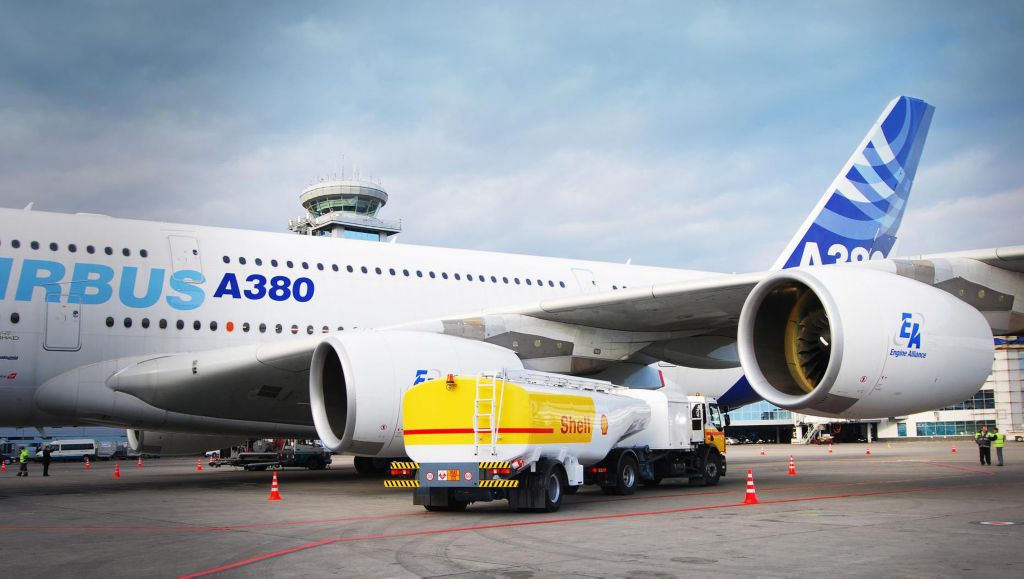Leading edge refuelling


What is special about our production method is that we manufacture products which not only meet international standards, but also the more stringent requirements that apply in this sector in Russia,” says Sergey Aronov, Technical Director of the bodybuilder company ZAO NPO Aviatechnology, whose aircraft refuellers operate in airports all over Russia and abroad.
A manufacturer of special vehicles, Aviatechnology entered the market right on time when the Soviet Union collapsed and an increasing number of foreign airlines began flying to Russia and beyond, all of which needed top-quality ground support. Originally the company used chassis from Russian truck manufacturers, but soon realised that these didn’t offer the complete technical capability for operating all year round. The company then spoke to several European manufacturers before choosing Volvo Trucks as their new chassis producer.
I service 50-60 aircraft every month. Not every vehicle can cope with this kind of load without a hitch, but Volvo can.
The collaboration has now been ongoing for ten years, and is characterised by a high level of cooperation in terms of devising technical solutions.
“During our first year of collaboration, we manufactured aircraft refuellers for Moscow’s Sheremetyevo and Domodedovo airports. If we look today at the choices we made ten years ago, our joint effort has definitely produced a positive result. Every refueller that we have manufactured using a Volvo Trucks chassis is still in operation at each of the airports,” says Sergey Aronov.
“During our first year of collaboration, we manufactured aircraft refuellers for Moscow’s Sheremetyevo and Domodedovo airports. If we look today at the choices we made ten years ago, our joint effort has definitely produced a positive result. Every refueller that we have manufactured using a Volvo Trucks chassis is still in operation at each of the airports,” says Sergey Aronov.
During the last couple of years, he has noticed how the market has undergone a process of consolidation, where there are now eight manufacturers of aircraft refuellers left in the European Union, and only two in Russia.
“Customers are no longer shopping around like they used to, in pursuit of the lowest production cost. They’re now looking for high quality at a reasonable price. As a result, they have stopped dealing with agents and are going directly to the manufacturers of special vehicles and equipment,” he explains.
Here Aviatechnology has an advantage, since the company is operating a complete cycle, from producing the drawings and building the complete vehicle, to testing and delivery to the customer. They also have a close collaboration with both their chassis manufacturer and the customers operating their vehicles. For example, the flexibility of the chassis manufacturer is crucial, due to the tough technical demands and abilities for integration of superstructure with chassis, especially in terms of safety functions.
It is also important that the vehicles that Aviatechnology deliver come with operational and high-quality service support for the end operator. “There isn’t any greater responsibility than refuelling an aircraft, right at its wing. This is where greater trust is put in tried-and-tested brands, such as AO Shell & Aerofuels that operate our aircraft refuellers at the Domodedovo airport. They trust us as well”, says Sergey Aronov.
Every aircraft refueller that we have manufactured using a Volvo Trucks chassis is still in operation at each of the airports.
For AO Shell & Aerofuels, their 2008 purchase of two aircraft refuellers on Volvo Trucks chassis for operation at Russia’s largest airport, Domodedovo, was the first time the company became familiar with a foreign brand. Today, all of the company’s refueller vehicles are operating on Volvo chassis, topping up dozens of airlines from Europe, Asia and America with jet fuel. Refuelling is carried out for both business jets and wide-body aircraft, including the Boeing 787 Dreamliner.
The Shell driver and operator Andrey Popov was given one of the first two Volvo FMs in Domodedovo in 2008 and wouldn’t change it for anything, except for a new version of exactly the same vehicle.
Just like his colleagues, Andrey regularly attends training courses for specialist drivers held by Volvo Trucks, and must also sit exams in order to receive a licence to operate his custom equipment. Safety and quality are main priorities when operating in an airport.
“Over a 12-hour shift, 3-4 aircraft need to be refuelled with jet fuel. I work 16 shifts a month. This means that, on average, I end up servicing 50-60 aircraft every month. Not every vehicle can cope with this kind of load without a hitch, but Volvo can. The facts speak for themselves,” he says.